Tiled roofs are the perfect combination of aesthetics and durability. Traditionally, most roofing tiles were either slate or clay, but thanks to modern inventions, today’s tiles come in a variety of shapes and materials. So, how do you choose the best roof tile for your home?
Homeowners can choose from a range of premium roofing tiles, including slate, clay, concrete, ceramic, metal, cedar shakes, and solar tiles. Slate and clay tiles last up to 100 years, metal tiles are a mainstream, sustainable roofing option, and solar tiles offer a green, eco-friendly solution.
From slate and clay tiles to modern ceramic, metal, copper, and solar tiles, you have a vast range of roofing tiles to choose from when installing a roof.
7 Types of Roof Tiles
Roof tiles are distinct, beautiful, and sustainable. Its natural aesthetics, longevity, and versatility are highly valued amongst homeowners. Tile roofs are weather-resistant and impervious to rot, lasting for centuries.
Roof tiles vary in weight, durability, appearance, and budget. We’ll delve into the most popular types of roof tiles, with their pros and cons, to help you pick the best material for your home.
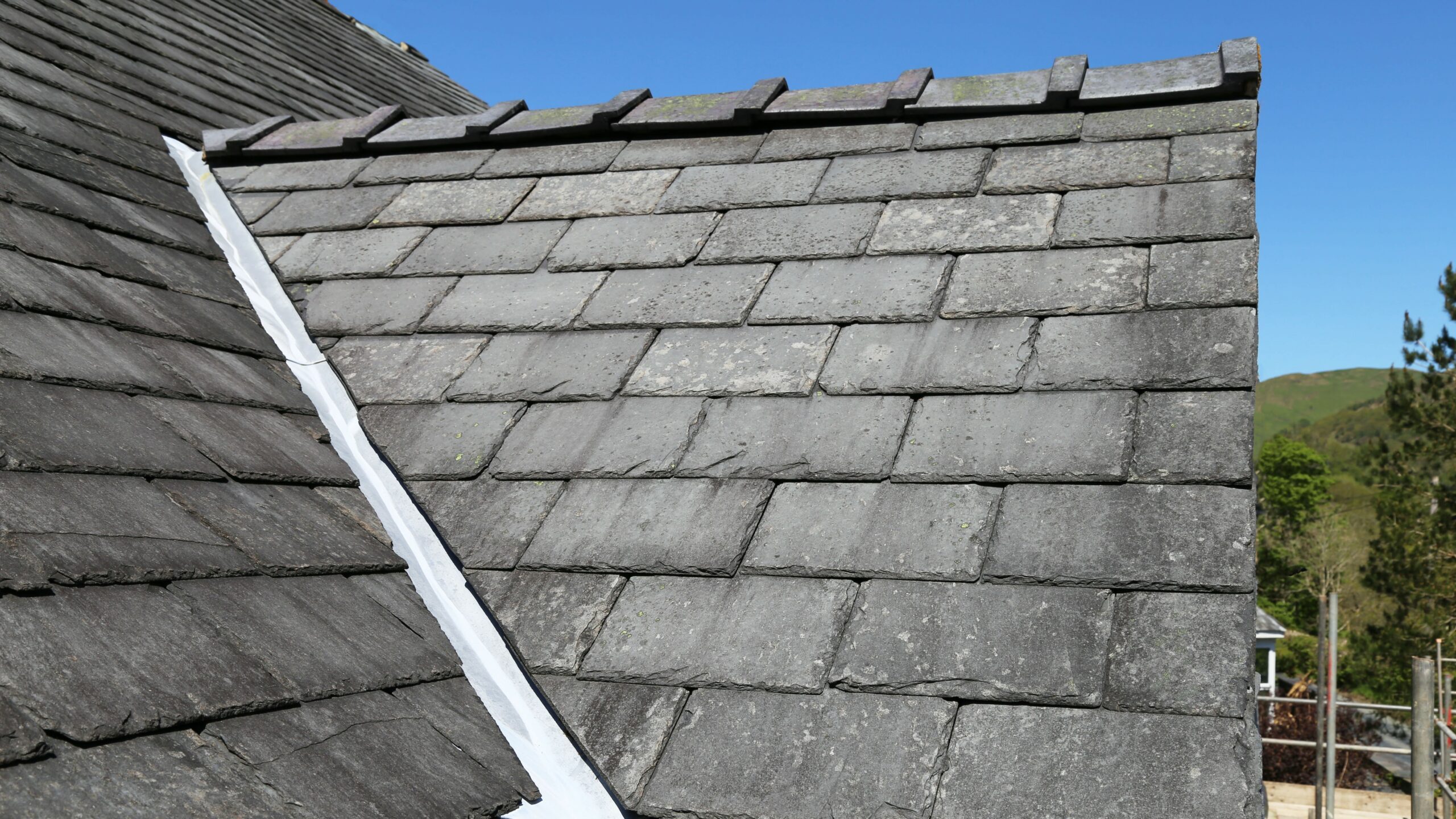
Slate Roof Tiles
Slate roof tiles are made from fine-grained metamorphic rocks. They are mainly characterized by flat, overlapping slate slabs. However, the tiles can be cut into uniform sizes or unique geometric designs and come in a plethora of colors, providing homes with an unmatched natural aesthetic.
The biggest downside to slate tiles is the cost. This premium roofing material requires meticulous installation from experienced roofers and demands a lot of time and effort. Slate tiles are also extremely heavy. Homeowners must consider reinforcing their home’s structure before installing slate tiles to support the additional weight.
Although the initial costs of slate roofing tiles may be intimidating, the quality and durability pay off in the long run. Slate roofs require minimal maintenance and last well over 100 years. The tiles offer excellent protection against extreme weather conditions.
BENEFITS
Extremely customizable
Low maintenance and highly durable
Energy-efficient and eco-friendly
Resistant to water, fire, temperature, weather, fungi, and mold
DRAWBACKS
Expensive to install and difficult to handle
Extremely heavy; may require reinforcing your roof structure
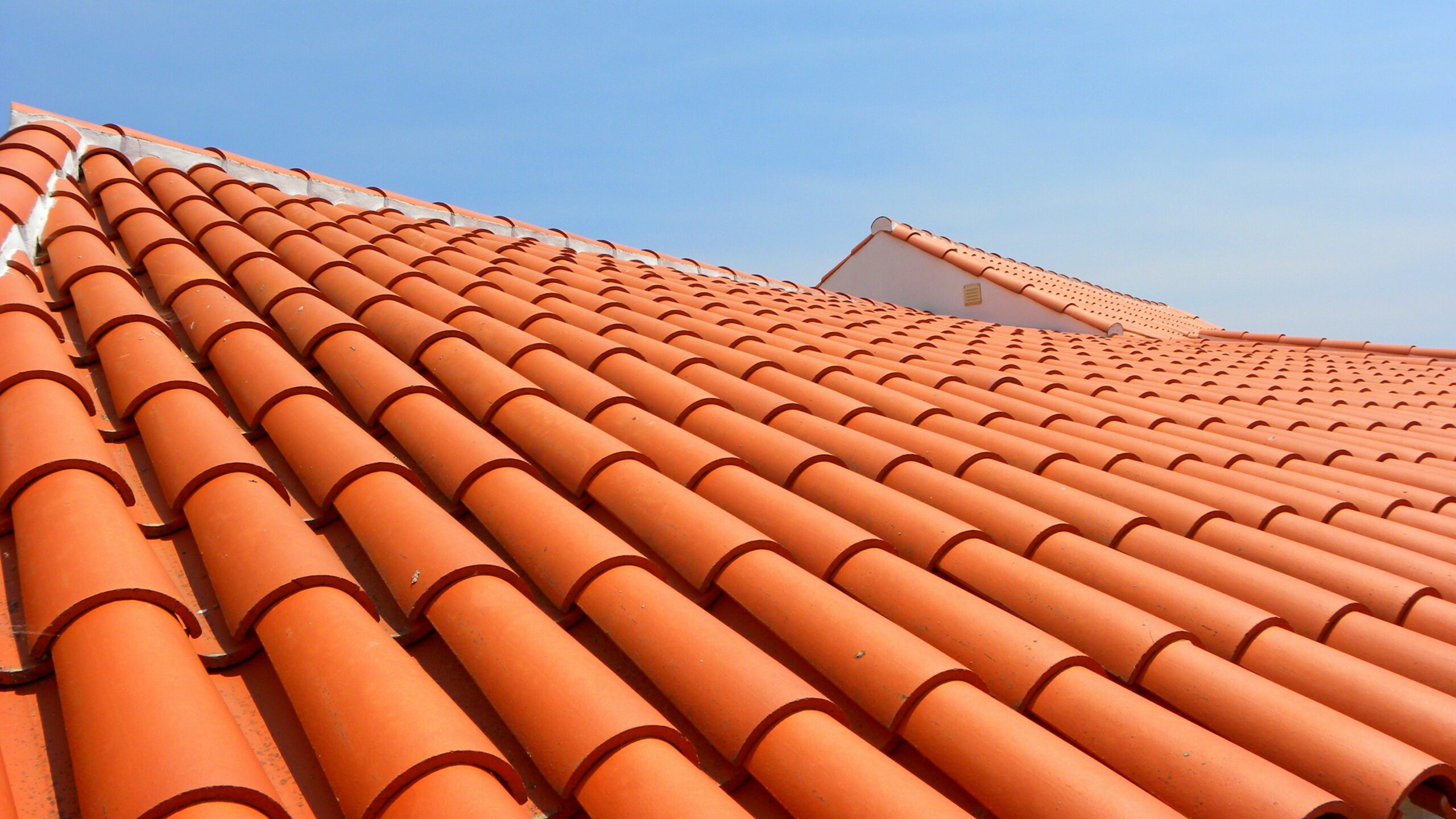
Clay Roof Tiles
Clay roof tiles have been a cult favorite for centuries. They are the perfect roofing option for traditional-style homes, adding a timeless touch of charm and elegance. Clay tiles are available in a gorgeous selection of Spanish, Mission, Flat, or French shapes, along with a variety of colors from characterful red and oranges to deep grays and alluring blues.
Clay roofing tiles offer homeowners a beautiful and durable exterior and are incredibly resistant to harsh weather conditions. They outperform many other roof tiles, lasting over 100 years.
Clay tiles also boast insulating properties, acting as a temperature buffer inside your home in hot and cold weather. Although durable, clay roof tiles are extremely fragile. They are porous and prone to break very easily if not carefully worked with. It’s advised to hire roof installers with extensive experience to prevent the tiles from breaking.
benefits
Aesthetic curb appeal
Insulation properties
Highly durable and weather-resistant
Energy-efficient and eco-friendly
drawbacks
Expensive
Brittle and breaks easily during installation
Heavy; may require reinforcing your roof structure
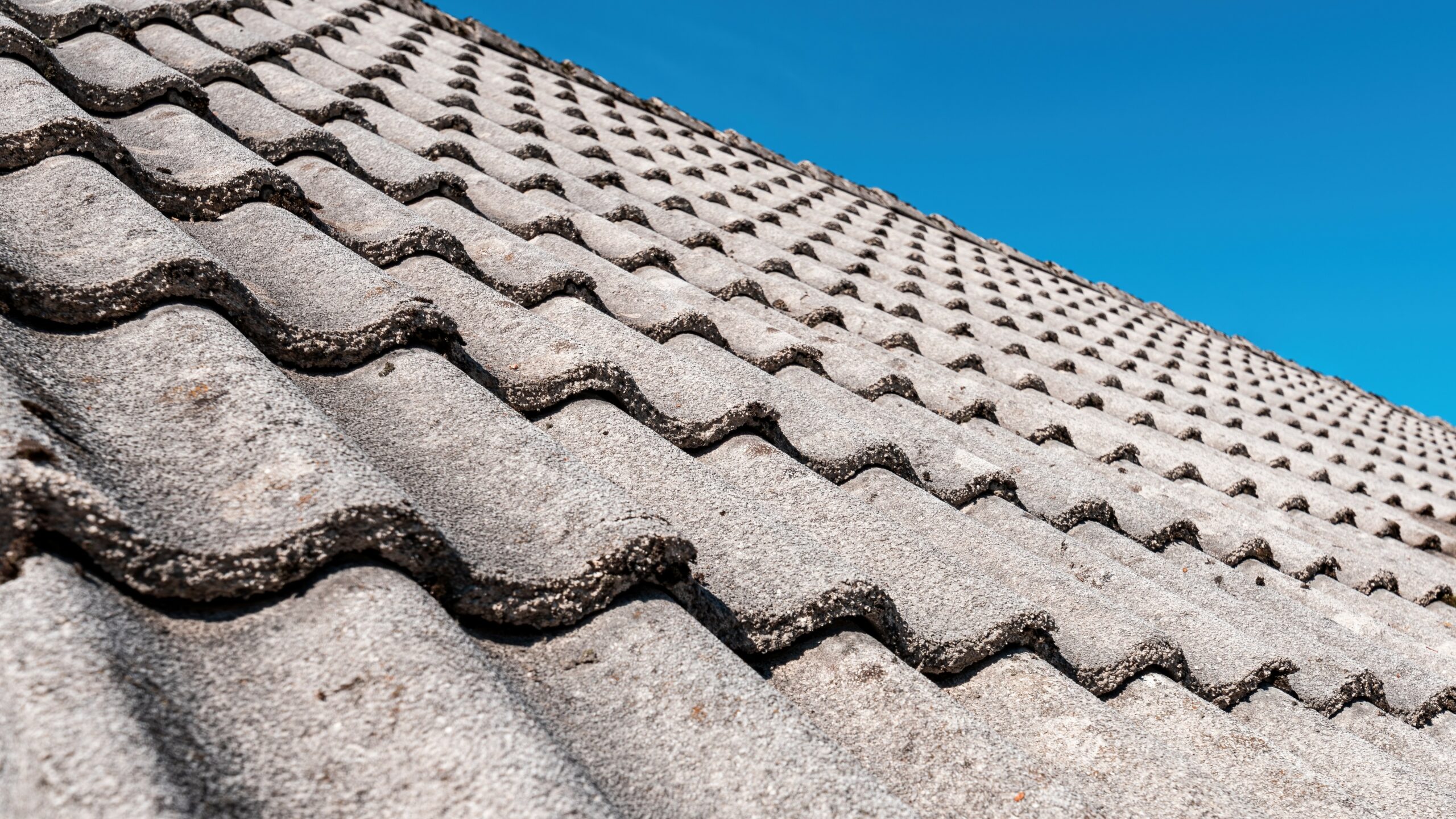
Concrete Roof Tiles
Concrete roof tiles are made of a sand, cement, water, and iron oxide mixture molded under heat and high pressure. This creates a tile similar to normal concrete but has the added benefit of being lightweight and durable.
Concrete tiles are perfect for low-pitch roofs and can be installed on pitches as low as 15°. Concrete roofing is also skyrocketing in popularity thanks to its durability, versatile design options, and cost-effective prices.
Weight is a serious concern for homeowners considering installing concrete roof tiles. Concrete tiles can weigh up to 1,100 pounds per 100 square feet. Homeowners may have to reinforce their roof structure to support the weight. Concrete tiles may also need maintenance as many climates are conducive to mildew and moss growth. With proper care, these tiles last around 50 years.
benefits
Affordable prices
Minimal maintenance
Energy-efficient and eco-friendly
Weather-resistant
drawbacks
Prone to mildew and moss growth in wetter climates
Heavy; may require reinforcing your roof structure
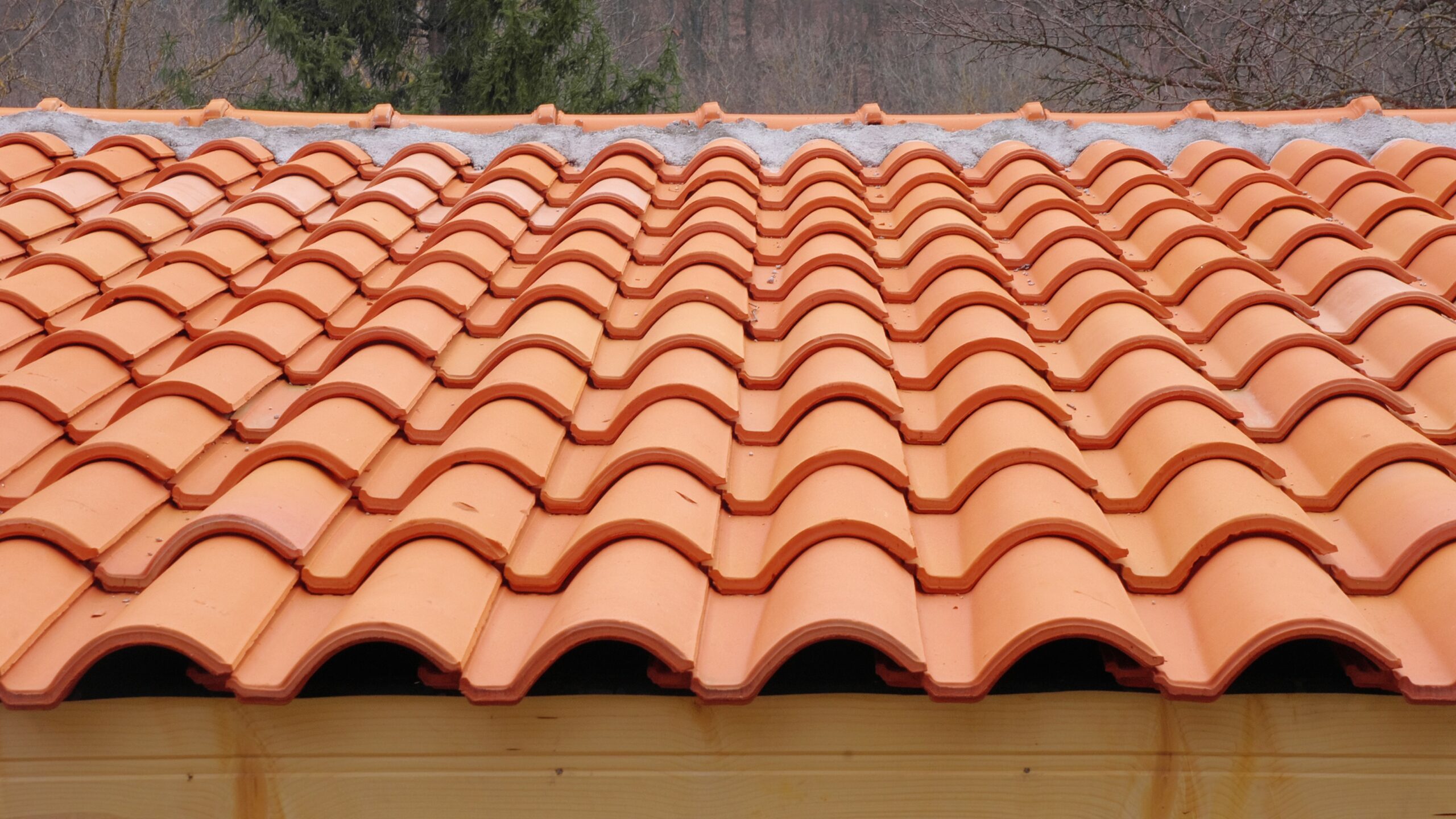
Ceramic Roof Tiles
Ceramic roof tiles are made from clay and other materials, shaped into aesthetic tiles, and fired at high temperatures – the kiln-firing process – to harden them and increase their durability. Ceramic tiles come in an infinite range of colors and shapes.
Ceramic roofing tiles offer superb resistance to fires and the elements. You can expect your roof to last at least 50 years with proper care and maintenance.
The biggest downfall of ceramic tiles is the complex installation. The tiles must be carefully packed in a scaled design by a roofing specialist to ensure proper drainage and watering. They also need to be placed with the utmost care to prevent them from shattering. Ceramic tiles require regular maintenance to avoid expensive damage repairs.
benefits
Durable and versatile
Energy-efficient and eco-friendly
Weather resistant
drawbacks
Complex installation
Essential maintenance
Tiles break easily during handling
May require additional support to handle the weight of the tiles
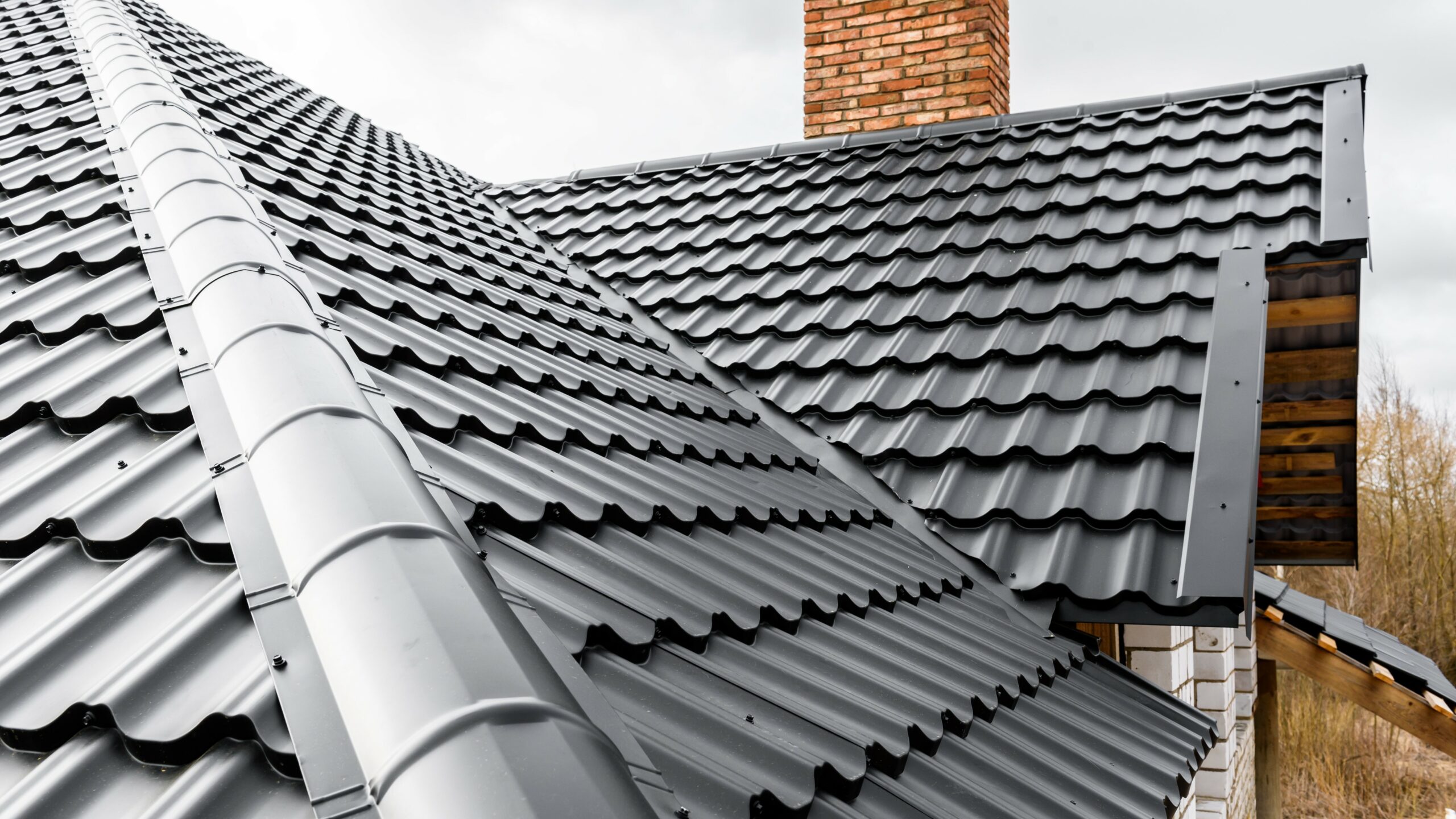
Metal Roof Tiles
Metal tiles are a mainstream, durable, and sustainable roofing option. Metal roofing tiles can be made from various metals, including copper, galvanized steel, aluminum, and tin. The tiles’ texture, color, and finish are customizable, ensuring there’s a complementary style for each homeowner.
Metal roofing is durable and resistant to wear and tear, lasting upwards of 50 years. The tiles can withstand high winds, heavy rain, fire, and snow accumulation. Metal roofs are prone to fading and staining and can be loud during rainstorms and hail. However, modern installation can help insulate the roof against the noise.
Note: The fear of metal roofs attracting lighting is without merit.
benefits
Customizable and stylish
Durable and weather-resistant
Minimal maintenance
Energy-efficient and eco-friendly
drawbacks
Expensive, easy denting
Prone to fading and staining
Dangerous to walk on when wet
Noisy without additional insulation installations
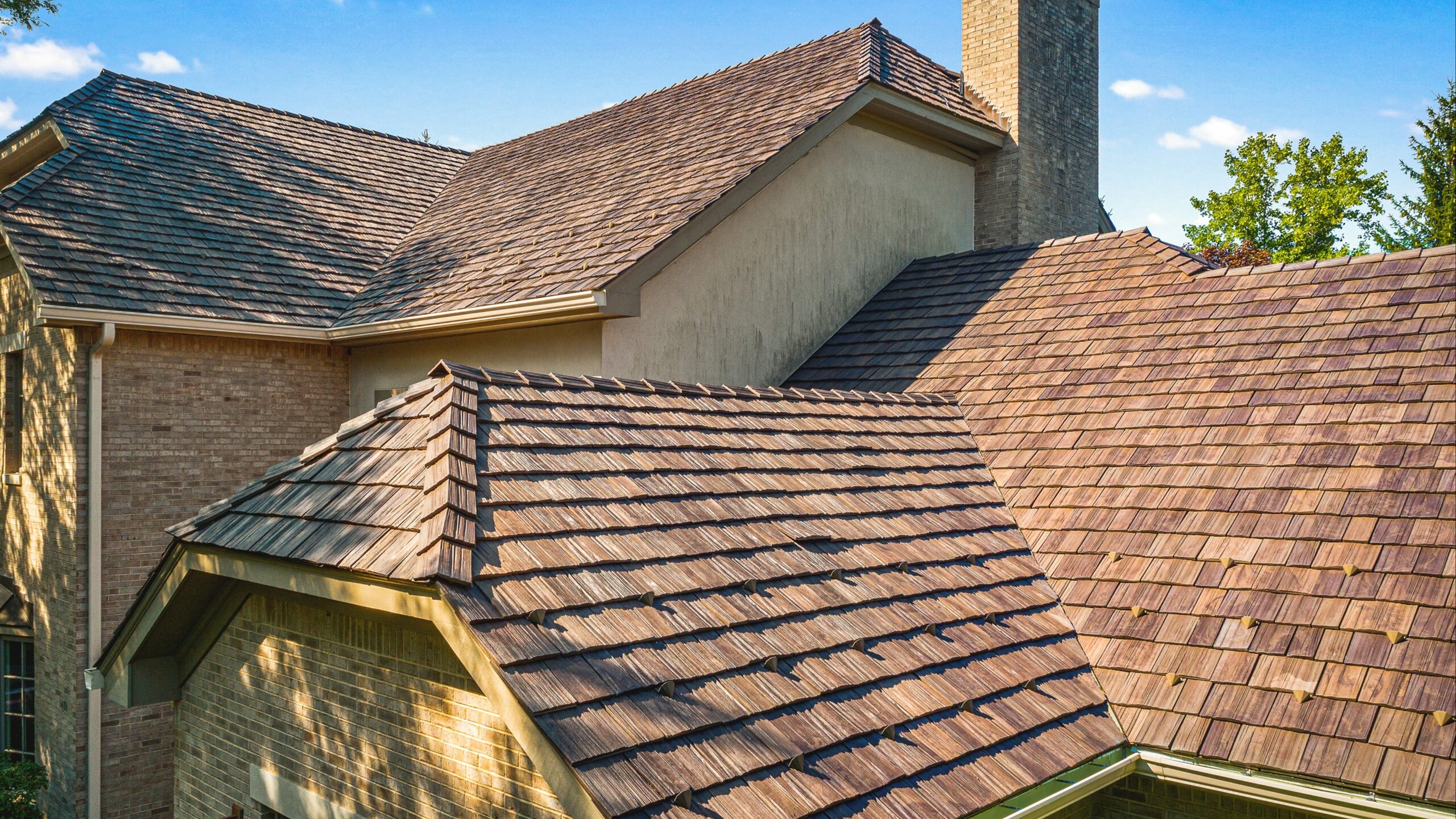
Cedar Shake Tiles
Cedar shake tiles were a top-tier roofing option for many years. They are made from thin slices of cedar overlapped and joined using galvanized nails. Despite the new and improved roofing options, rustic wood shakes remain a beloved option among homeowners.
Cedar shake tiles are a classic and timeless roofing choice. They boast an unbeatable curb appeal with their natural beauty and rustic charm. With proper care and maintenance, the tiles can last between 15 and 30 years.
Homeowners can opt for synthetic cedar tiles made from composite materials. They are more durable than natural wood and offer a similar aesthetic appeal.
benefits
Durable
Energy-efficient and eco-friendly
Naturally resistant to insects and decay
High curb appeal and ages beautifully
drawbacks
Availability
Requires regular maintenance
Prone to mildew and moss growth
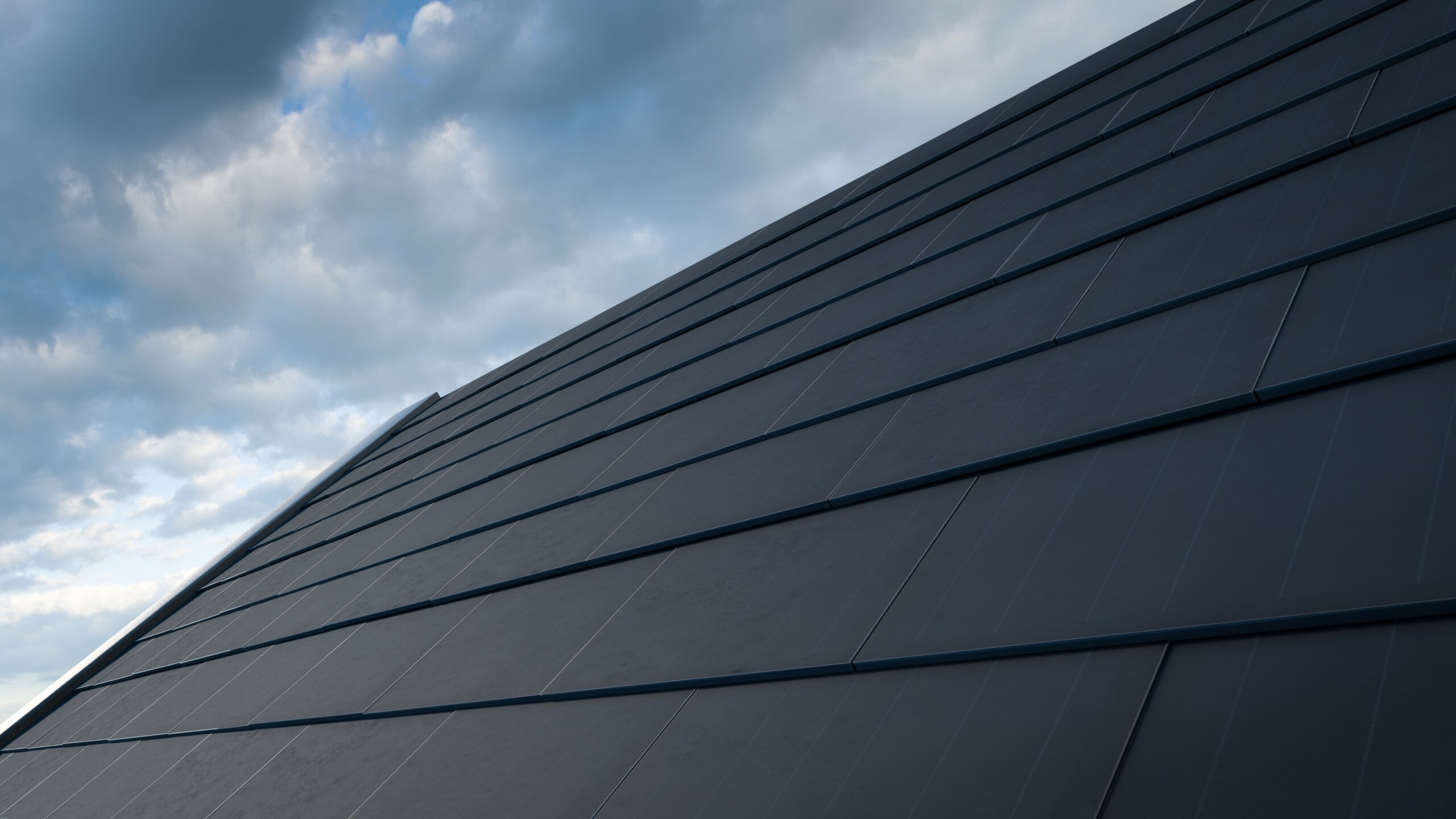
Solar Roof Tiles
Solar roof tiles allow homeowners to harness the power of solar energy, protect the environment, and add value to their properties. Solar tiles are made from slim photovoltaic (PV) sheets. The sheets either overlay or replace existing shingles on your roof.
Solar roof tiles are more attractive than large, bulky solar panels. These tiles integrate especially well with asphalt and concrete roofs. They last up to 20 to 30 years and sometimes even longer with proper maintenance.
Solar roof tiles are pricier than solar panels and require homeowners to remove parts of their roof for installation.
benefits
Durable and energy-efficient
Sleek, attractive aesthetic
Weather resistant
Cost-effective long-term when building a new roof
drawbacks
Expensive
Limited styles
Not all roofs are conductive to solar tiles installation
Final Thoughts
There are many excellent tiling materials available on the market. Each homeowner needs to find the perfect balance between style, durability, and practicality to suit their roof structure. The last thing to consider is a roofing option that matches your budget. (Related article: 6 Types of Roofs in Florida and the Pros and Cons of Each One)

